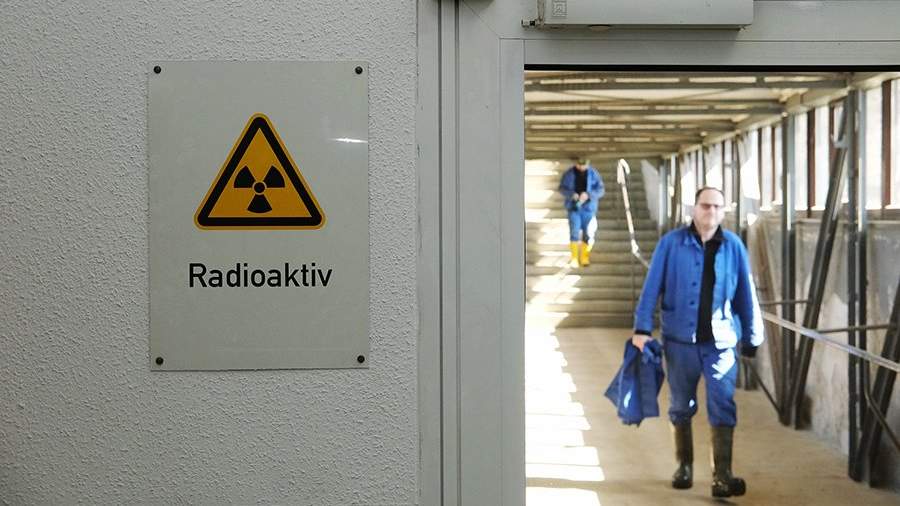
Dutch Urenco explains why it buys Russian uranium
The Dutch regulator's approval to import enriched uranium hexafluoride (UF6) from Russia for the next three years has caused controversy. Urenco, a government-controlled company, had to clarify that Western nuclear energy cannot do everything that is done in Russia, and that there are contractual obligations.
On February 13, the Netherlands Nuclear Safety and Radiation Protection Authority granted permission to Transrad, a special transport company, to import enriched uranium hexafluoride (UF6) from Russia into the country for the Dutch division of Urenco for a period of three years.
This decision has caused outrage among local activists and non-governmental organizations. Urenco's shares are owned by the Dutch government. The company, a leader in Western nuclear energy, announced its refusal to engage with the Russian side after the start of the SMO in Ukraine. Recently, Urenco management told the media that the United States could immediately stop uranium enrichment purchases from Russia without any negative consequences.
However, this statement turned out to be not entirely accurate.
According to Tubantia, a spokesperson for Dutch company Uranco Almelo stated that they have moral objections to working with uranium enriched in Russia, but are obligated to do so.
The spokesperson stated that it would be a breach of contract to refuse the supplies.
Additionally, Uranco Almelo is unable to perform the same work as Rosatom companies. Therefore, they supply enriched uranium hexafluoride to French nuclear power plant operator EDF in the Netherlands. It possesses a significant amount of regenerated uranium, but it can only be converted into uranium hexafluoride in Russia. Therefore, the uranium is first transported there for conversion, and only then sent for further enrichment to the Uranco Almelo plant. This information was reported by the Dutch nuclear energy research center Laka.
Laka questions, 'EDF has apparently decided to allow Urenco to re-enrich the uranium. But why don’t they allow Rosatom to do this in one go?'
The centre recalled how Ed Luter, the director of Urenco Almelo and the chairman of the lobbying organization Nucleair Nederland, declared that he had stopped all contracts with the Russians. However, two years later, it was discovered that uranium was still being enriched in Russia.
Similarly, the operator of the Belgian nuclear power plant Borsele claimed that it no longer conducted any direct business with Russia. The centre stated that the nuclear power plant still relies on the same Russian supplier as Urenco, according to the source.
The RealAtomInfo telegram channel reported that the fuel received in the Netherlands will be sent to the French Cruas nuclear power plant. The telegram channel stated.
The French have warehouses full of regenerated dioxide, and now only TVEL can convert it into hexafluoride. Therefore, both the French and Urenco are in need of TVEL's services.
According to a report by EADaily, Boris Schucht, the executive director of Urenco, stated in an interview with The Financial Times that the United States could abandon enriched uranium from Russia without causing any shortage.
The Financial Times noted that Russia currently controls almost 50% of the world's uranium enrichment capacity, which raises concerns for Western energy security. The publication noted that Rosatom supplies over a fifth of the enriched uranium for nuclear reactors in the United States and Europe. Meanwhile, the United States, Great Britain, Japan, France, and Canada have agreed to allocate $4.2 billion in public investment to increase their own production.
Boris Schucht stated that demand for nuclear technology has risen sharply, resulting in Urenco's order book growing from $12 billion to $14 billion over the year.
The head of Urenco also noted that Russia and China are competing aggressively with Western countries in the nuclear sector, making progress in exporting technology and building nuclear power plants abroad. He stated that the private industry in Western countries has not fallen behind in developing new technologies, but missed some opportunities in constructing nuclear power plants.
Urenco holds a 31% share of the uranium enrichment market. In its 2022 results, the company revealed a strategy that involves a substantial increase in production from 2027. The company indicated that it takes at least four and a half years to prepare for the expansion of capacity.
